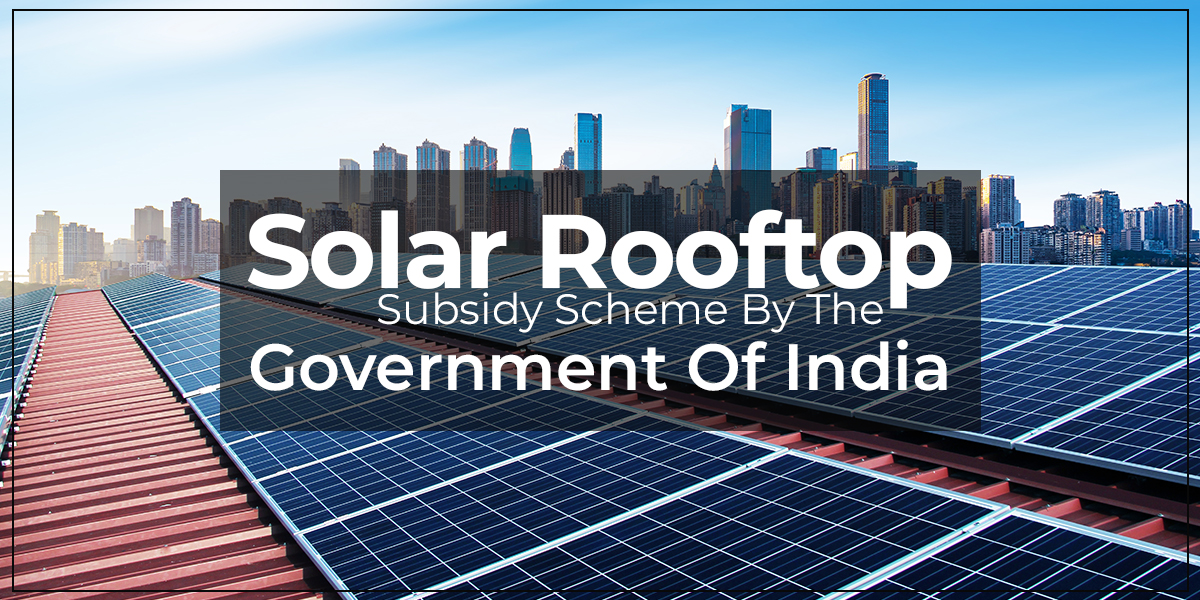Solar energy is acknowledged as a cost-free and environmentally friendly power source, reducing reliance on natural resources such as water and coal. The Government endeavors to implement solar power systems in every household, enabling individual solar rooftop installation to generate self-sustaining energy. Hence, this blog explains the financial support offered by the Government known as solar rooftop subsidy scheme by the Government Of India for residential homes.
Why Does The Government Offer Solar Subsidies?
The solar rooftop initiative in India aims to harness electricity from sunlight. The primary challenges in the solar installation Chennai includes financial resources, rooftop space, and solar financing. Hence the Government subsidies and loans stand out as fundamental initiatives. Also, the Indian Government aims to establish solar panels around one crore homes by 2024, allocating a budget of 5,000 crores for rooftop solar installations. As a result, many power distribution companies are actively enhancing the capacity of existing transformers.
Solar Panel Subsidy Scheme In India 2024
Solar Panel Subsidy In Uttar Pradesh:
For residential society initiatives ranging from 10 kW to 100 kW in capacity, the central authority will extend a 40% subsidy for the initial 3 kW and a 20% subsidy for the remaining capacity. Although the residential sector can install a solar power system exceeding 10 kW, the central subsidy will only apply up to the 10 kW threshold.
Solar Panel Subsidy In Kerala:
The center offers a 20% subsidy for group housing society projects and residential welfare associations undertaking projects with a capacity of up to 500 kW. Alternatively, customers opting to invest the entire amount to install the plant can receive a subsidy equivalent to 40% of the cost.
Solar Panel Subsidy in Maharashtra:
Based on the benchmark cost, a 30% subsidy is offered to establish grid-connected solar rooftop power plants. Government institutions, including PSUs, are not qualified for this subsidy but will receive achievement-linked incentives/awards instead. Both residential and institutional structures, such as schools and health institutions within the social sector, are eligible to benefit from CFA.
Solar Panel Subsidy in Tamil Nadu:
Tamil Nadu Chief Minister’s Solar Rooftop Capital Incentive Scheme Under this program, the Tamil Nadu Government offers a capital subsidy of Rs. 20,000 per kilowatt for grid-connected residential solar PV systems. This subsidy is provided in conjunction with the 30% subsidy initiative by the Ministry of New and Renewable Energy (MNRE) of the Government of India. The solar system capacity is limited to 1 kW for standalone homes or apartments. However, for residential complexes, solar systems with capacities of 5 kW, 10 kW, and their multiples can be applied collectively, facilitating common usage through group applications.
Application Process:
The application process for the solar rooftop subsidy is designed to be user-friendly and efficient. The beneficiaries can apply through designated channels, providing necessary details about their rooftop and energy requirements. In collaboration with various state agencies, the Government has streamlined the approval process to ensure a hassle-free experience for applicants.
Upon approval, beneficiaries can proceed with installing the solar power system. Notably, the subsidy is disbursed after successful commissioning, motivating consumers to complete the installation promptly and efficiently.
The Solar Rooftop Subsidy Scheme by the Government of India is a landmark initiative that promotes sustainable energy practices and empowers citizens to participate actively in the country’s renewable energy journey. Invest with Buhin Solar, one of the best solar dealers in Chennai, for a brighter, cleaner, and more energy-efficient India.


